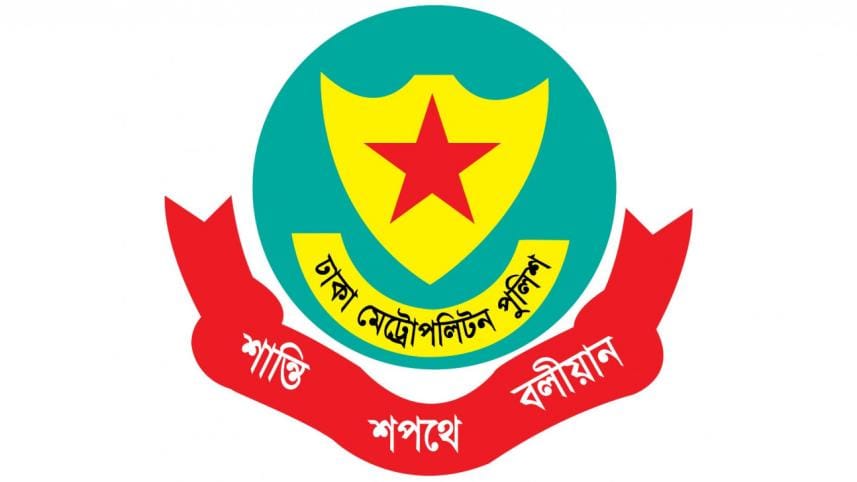Auxiliary police force: DMP appoints 500 security guards

The Dhaka Metropolitan Police (DMP) has appointed around 500 security personnel working in various residential areas, markets, and shopping centres across the capital as members of the "Auxiliary Police Force".
The appointments were given under Section 10 of the Dhaka Metropolitan Police Ordinance, 1976, by DMP Commissioner SM Sazzat Ali.
The ordinance, under its "Constitution and Organisation of the Dhaka Metropolitan Police" section, empowers the police commissioner to appoint auxiliary officers to assist law enforcement when additional support is required.
Subsection (2)(b) of Section 10 further stipulates that auxiliary officers, upon appointment, shall have the same powers, immunities, duties, and authority as regular police officers.
The designated auxiliary members will be legally protected, similar to regular police officers.
"If anyone obstructs an auxiliary member from performing their duties or attacks them, legal action will be taken against the offender," SN Nazrul Islam, additional commissioner (crime and operations) of DMP, told The Daily Star.
The auxiliary members will be able to make arrests: they will hand over detainees to the designated police patrol team or the nearest police station, and the police will then investigate the complaint, and after a preliminary inquiry, lawful action will be taken based on the findings.
Asked about the selection process, Nazrul said the DMP has identified malls and markets that already have private security guards.
"We appointed the team leaders of these security guards as auxiliary force members," he said.
In residential areas, the DMP focused on localities and alleys where security guards lock the gates after a specific time. "We have chosen these guards as members of the auxiliary police force."
When asked whether the auxiliary officers would receive training, Nazrul said the initiative is temporary.
"We will not provide any training. They will only wear a band labelled 'Auxiliary Police Force' on their arms."
Addressing concerns of misuse of power, Nazrul assured that strict monitoring mechanisms are in place.
"Our patrol teams and local police stations will supervise the activities of auxiliary members round the clock. If any member is found abusing their authority, their appointment will be terminated immediately."
Nazrul said the move aims to bring a large number of security guards working in malls and residential areas under greater accountability.
"We want to boost their confidence as they act as associates of the police in ensuring security. Once their work receives legal protection, petty crimes in alleys and marketplaces are expected to decrease, enhancing overall security," he said.
Earlier on Saturday, DMP Commissioner SM Sazzat Ali said that the initiative was introduced to enhance security during Ramadan and Eid shopping, as many shopping centres will remain open late into the night.
Experts have welcomed the move but emphasised the importance of supervision, background verification, and training to ensure its effectiveness.
Many private security organisations employ retired armed forces personnel and former police officers, according to Nurul Huda, a former inspector general of police.
"A significant number of these individuals have experience in firearm handling and minor investigations. This makes them a ready force, whereas recruiting and training new personnel properly would take at least six to nine months."
Supervision is essential to ensure that those appointed are properly vetted, Huda said.
Verification must be done to confirm their background, and if there are any training gaps, they can be addressed in seven to ten days.
He acknowledged that there is added pressure due to Ramadan as security duties increase during this time.
"Shopping malls remain open late and ensuring security with standard eight-hour shifts requires three shifts per day to meet international standards."
Besides, many key police positions in the DMP are now occupied by newly appointed officers.
"Handling law enforcement in a metropolitan city like Dhaka requires extensive local knowledge and a well-established information network, which some new officials may still be developing," he said.
He remains optimistic about this initiative.
"Rather than dismissing this as a failure, it should be seen as an experiment. If it proves effective, it could be a model for future security arrangements."




 For all latest news, follow The Daily Star's Google News channel.
For all latest news, follow The Daily Star's Google News channel.
Comments